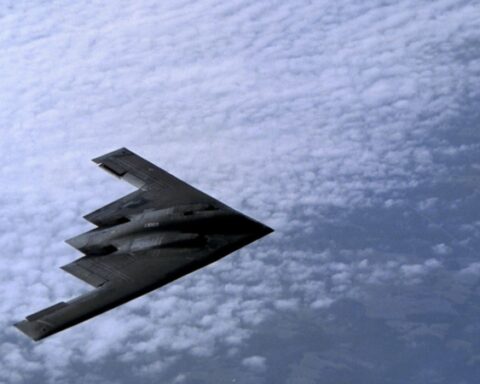A Pentagon assessment released Wednesday reportedly concluded that recent U.S. airstrikes targeting Iran’s nuclear infrastructure have delayed the country’s program by up to two years — a more tempered judgment than President Donald J. Trump’s claim that the attacks had “obliterated” Tehran’s capabilities.
Speaking at a Defense Department briefing, Pentagon spokesman Sean Parnell said intelligence analysts believe the strikes have “degraded their program by two years,” noting that the assessment is based on satellite imagery, intercepted communications, and reports from regional allies.
The strikes, which occurred in coordination with Israeli operations, included the deployment of U.S. B-2 stealth bombers that dropped 14 bunker-busting munitions on the underground enrichment facility at Fordow and the uranium processing center at Natanz.
Cruise missiles launched from an American submarine targeted a third key site in Isfahan. Israel is believed to have conducted parallel attacks on Iranian nuclear scientists and military leadership in recent weeks.
Despite the coordinated assault, questions persist among experts and international monitors about the long-term impact of the strikes.
While Defense Secretary Pete Hegseth insisted last week that “we were able to destroy nuclear capabilities,” independent analysts and intelligence officials remain cautious.
Rafael M. Grossi, director general of the International Atomic Energy Agency (IAEA), described the attacks as causing “a very serious level of damage,” but warned that Iran retains significant capabilities.
“They can have, in a matter of months — or less — a few cascades of centrifuges spinning and producing enriched uranium,” he said in an interview on CBS’s Face the Nation.
Grossi also expressed concern that some of Iran’s enriched uranium stockpiles may have been moved ahead of the strikes, complicating efforts to evaluate the full extent of Tehran’s remaining nuclear potential.
Hopes that IAEA inspectors might soon resume monitoring were dashed Wednesday after Iran announced it would suspend cooperation with the agency.
A classified assessment by the Defense Intelligence Agency delivered shortly after the strikes suggested that Iran’s program may have been set back by only a few months — a conclusion that Trump administration officials downplayed, labeling it a preliminary judgment based on incomplete data.
In a statement released after the DIA findings became public, CIA Director John Ratcliffe asserted that “a body of credible intelligence indicates Iran’s nuclear program has been severely damaged by the recent, targeted strikes,” though he declined to offer a specific timeline for recovery.
[READ MORE: Trump Holds Phone Call With Putin After Delaying Weapons Shipment to Ukraine]








